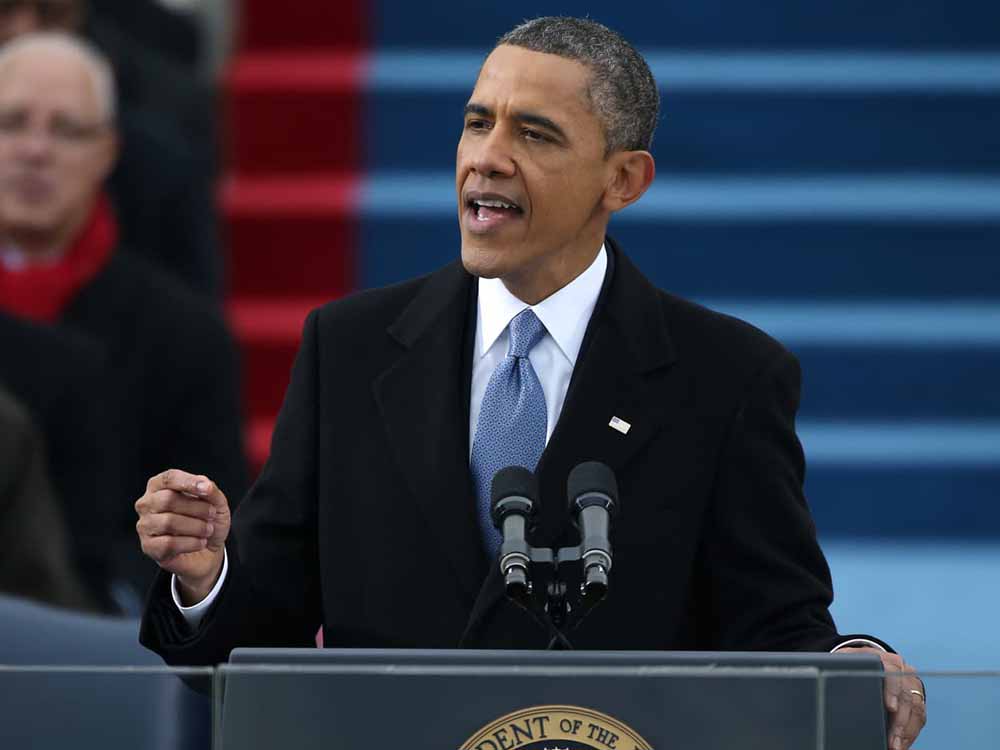Barack Obama Takes Office as the 44th President of the United States
Barack Obama made history on January 20, 2009, as he was sworn in as the 44th President of the United States. His inauguration marked a significant moment in American history, as he became the first African American to hold the highest office in the land. The event drew immense crowds to the National Mall in Washington, D.C., and millions more watched the ceremony unfold on television around the world.
Inaugural Address – A Call for Unity and Change
In his inaugural address, President Obama delivered a powerful and inspiring message that resonated with the theme of unity and change. He emphasized the need for Americans to come together, transcending political and ideological divisions. Obama’s eloquent speech outlined his vision for a new era of cooperation and collective responsibility, challenging the nation to overcome its challenges and build a brighter future.
Early Policy Initiatives – Addressing Economic Crisis and Healthcare Reform
Upon taking office, President Obama faced a daunting set of challenges, chief among them being the global financial crisis that had plunged the country into a severe recession. One of his initial priorities was to address the economic downturn, and in February 2009, he signed the American Recovery and Reinvestment Act into law. The stimulus package aimed to stimulate economic growth, create jobs, and invest in crucial sectors like infrastructure and renewable energy.
Simultaneously, Obama embarked on an ambitious effort to reform the healthcare system in the United States. The Affordable Care Act, commonly known as Obamacare, became a central focus of his early presidency. The legislation aimed to expand access to healthcare, control rising costs, and improve the overall quality of the nation’s healthcare system. The process of passing the legislation was complex and politically charged, but it ultimately marked a significant milestone in healthcare reform.
Foreign Policy Challenges – Navigating a Complex Global Landscape
In the realm of foreign policy, President Obama inherited a complex and challenging landscape. The wars in Iraq and Afghanistan were ongoing, and he faced critical decisions regarding the United States’ military involvement in these regions. Obama announced a plan to withdraw combat troops from Iraq, fulfilling a campaign promise to end the conflict responsibly.
Afghanistan presented a different set of challenges, and Obama authorized a surge of additional troops in an attempt to stabilize the situation. However, he also set a timeline for the withdrawal of U.S. forces, emphasizing the need for a transition to Afghan control.
In addition to addressing ongoing conflicts, Obama worked to reset diplomatic relations with countries around the world. His administration sought to engage in multilateral efforts to address global issues such as climate change, nuclear proliferation, and economic cooperation.
Public Perception and Challenges Ahead
Barack Obama’s early days in office were met with widespread optimism and high expectations, but challenges persisted. The economic recovery was slow, and critics questioned the effectiveness of his policies. The political landscape remained polarized, with partisan tensions impacting the ability to pass key legislation.
Despite facing obstacles, Obama’s presidency symbolized a historic moment of progress and change. His commitment to unity, coupled with his vision for a better future, inspired many Americans. However, the road ahead was uncertain, and the complexities of governing a nation in the midst of economic turmoil and global challenges required strategic decision-making and resilience.
In conclusion, 2009 marked the beginning of Barack Obama’s presidency, a time of historic significance and high aspirations. From the inauguration to the early policy initiatives and foreign policy challenges, the year unfolded with a mix of achievements and hurdles. As the nation looked to its new leader for guidance and direction, Obama navigated the complexities of governance, leaving an indelible mark on the trajectory of the United States during his tenure.











